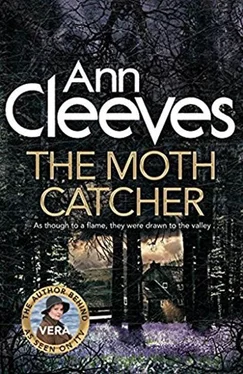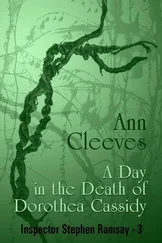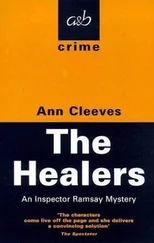‘Nah,’ the woman grinned. ‘This is one of the quiet days. And to think I joined up because I thought I could make a difference.’
He introduced himself and then held out the photograph. ‘Do you recognize this man? He was in yesterday lunchtime.’
‘That’s Martin Benton.’ She didn’t have any curiosity at all about why Joe would want to know. ‘He’s just been assessed as fit to work, after a long time on invalidity benefit. We’ve been helping him back to the job market.’
‘He had an appointment with you yesterday?’
‘Yes, the initial interview, so I could explain the process and the responsibilities of the jobseeker. But when he came in he’d already decided to take the self-employment route.’
‘Did he say what work he intended to do?’
‘I don’t think so, and really it wasn’t relevant for our purposes. He’d decided not to claim benefit. That was all we needed to know.’
‘But you’ll still hold all his details. His address and previous work record.’
‘I’m not sure I can give you that information. Data protection.’ The room was quiet now and the sun was streaming through the windows, making it feel very hot.
‘Well, I can get a warrant of course, but your supervisor said you’d be able to help.’ Joe nodded towards the door that said Staff Only. He thought the people upstairs in the open-plan office had it easy.
The young woman shrugged, tapped a few keys and hit the print button. ‘I’m leaving anyway,’ she said. ‘So sod it – it’s their responsibility. I’m going back to uni to do a social-work course.’
‘This’ll be good practice.’
‘Aye,’ she said. ‘That’s what I thought.’
She held out two printed sheets.
In the cafe on the square Joe drank milky coffee and read the life history of Martin Benton. The facts, at least. It seemed to Joe that there was little here to bring the man back to life. He’d been forty-eight when he died and he lived in a suburb of Kimmerston. He’d gained eight GCSEs at reasonable grades and three A levels, then got a degree in maths from Northumbria University. He’d done a postgraduate teaching year and had worked in a number of local high schools for fifteen years. There was no explanation for his decision to leave teaching. His most recent employment had been three years before, when he’d worked as an admin officer for a small charity. After that he’d been registered for invalidity benefit until, under the new regime, he’d been assessed as fit for work.
There were some gaps in Benton’s employment record: a couple between teaching posts, and a longer spell before he began work for the charity. If he’d been a different kind of man, Joe would have suspected criminal activity. Spent spells in prison wouldn’t necessarily have to be declared. His record could be checked, but it seemed unlikely. Qualified maths teachers didn’t usually become petty criminals.
There were no details of Benton’s family history. Joe found himself hoping that in the house in Laurel Avenue there would be a wife waiting for him – that the grey man hadn’t been a loner. He pictured someone soft and comfortable, with an easy smile, and began to imagine reasons why she might not have reported her husband missing the night before. Then he told himself that such speculation was ridiculous and he should check out the address to see.
Laurel Avenue was a quiet terrace on a hill on the edge of the town. Neat little Edwardian houses with identical porches, and a footpath that separated the homes from tiny gardens. At the back, yards and a narrow street for cars and bins. Joe preferred new houses that took no maintenance, but he could see the attraction of living here. The kids could play out, because there was no traffic at the front, and there was a view of the hills. It felt as if you could be in a village. Some of the gardens were planted with raised beds of salad leaves, wigwams for runner beans, but number twelve held the traditional square of grass with flowerbeds round the edges. The lawn could have done with a cut, but the place wasn’t overgrown or neglected. At the bottom of the garden stood a square plywood box that, from a distance, Joe took to be a hutch for a small pet. Curiosity took him over the grass to look, but there was no animal inside; instead an aluminium funnel and a large bulb. Joe was none the wiser.
There were three steps up to the front door. He rang the bell and waited. Pressed it again and listened to make sure that it was working. No response. Perhaps the comfortable wife of his imagination was out at work.
He was thinking he’d go round to the back and see if he could find a way in, without breaking a window, when a neighbour appeared. Elderly, plump. White hair in tight curls. She looked like Benton’s imaginary wife, but thirty years older.
‘Martin’s not in.’
Joe stepped over the low wall that separated her front step from number twelve. ‘Has he got any family?’
‘Who wants to know?’ She gave him a lovely smile, but her words were sharp.
‘Police.’
‘Come in then, and we can talk. They’re a nebby lot round here.’ Another smile. ‘As you can see. I’m Kitty Richardson.’
Inside the place was polished. Every surface in the small living room gleamed in the sun that came through the bay window and smelled of lavender. In a corner a yellow budgie sat on a perch in a cage on a stand. Joe thought little had been changed since the house was built.
‘You’ve been here a while?’
‘Since we were first married.’ She settled on a high-backed chair facing the television and nodded for him to take the sofa. ‘My Arthur passed away on my seventieth birthday, but I stayed on. No point moving when my friends are all here.’ She nodded towards the partition wall that separated her house from Benton’s. ‘Elsie was like a sister to me.’ A pause, then a confession. ‘When she went, I missed her more than I did Arthur.’
‘And Elsie was?’ The reflected light was making him blink.
‘Martin’s mam, of course.’
‘Did he always live with his mother?’
‘On and off.’ She looked up at him. ‘He was never a strong man. Always had trouble with his nerves.’ There was a moment’s silence. The budgie squawked. ‘What’s he done?’
‘Nothing.’ Joe hesitated and then thought that the news would get out soon enough. ‘Martin’s dead. He died in suspicious circumstances. I need to notify his next of kin. And get into the house, if I can.’
‘Did he kill himself?’
Joe thought of the body that had been lying on the polished wooden floor in the attic of the big house. The slashes of the knife ripping at the shirt, and through the skin and bone. That certainly hadn’t been the result of suicide. ‘No!’
‘It wouldn’t have been surprising,’ Kitty said. ‘Elsie didn’t go into details, but I think he tried. Once or twice.’ She paused. ‘I don’t know about next of kin. His father died just before Elsie. There weren’t any other children.’ She looked up. ‘Sad, isn’t it? I can’t think of any relative who might be interested.’
‘Can you tell me about him?’ A Vera question, open-ended.
‘He was one of those quiet, sickly bairns. I was a nursery nurse before I married and I knew the sort. Given to asthma and feeling sorry for himself. It didn’t help that he was an only child and his mother loved the bones of him.’ She hesitated and Joe knew better than to jump in with another question. ‘He’s always been a loner. Never had a woman, as far as I know.’ A pause, a sly look and a grin to show how enlightened she was. ‘Or a man. He was canny enough, though. Kind. He took other people’s problems to heart. He was at the front door every five minutes collecting for some charity or other.’
Читать дальше












